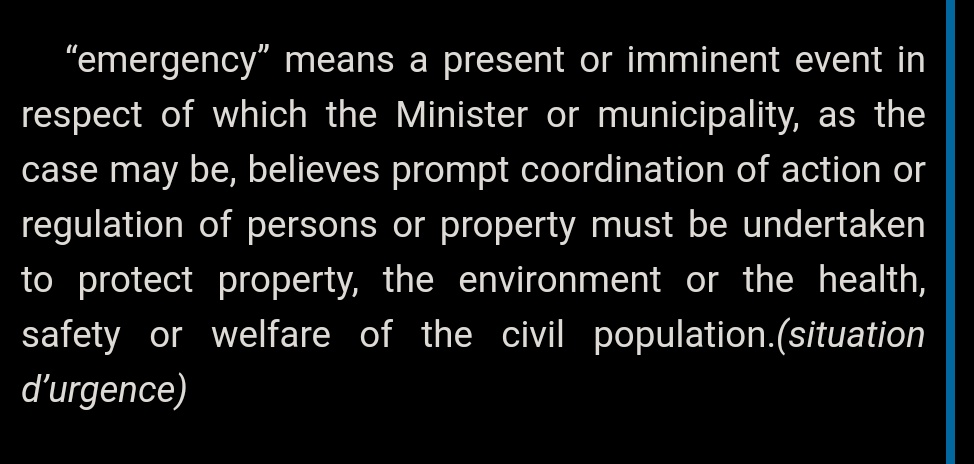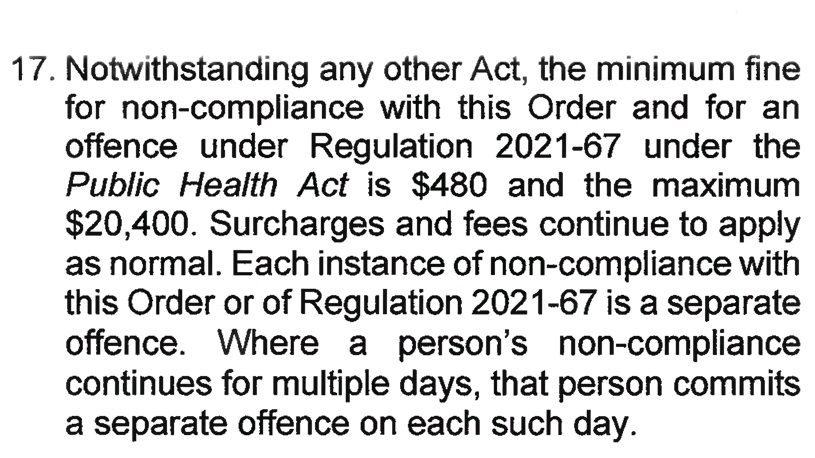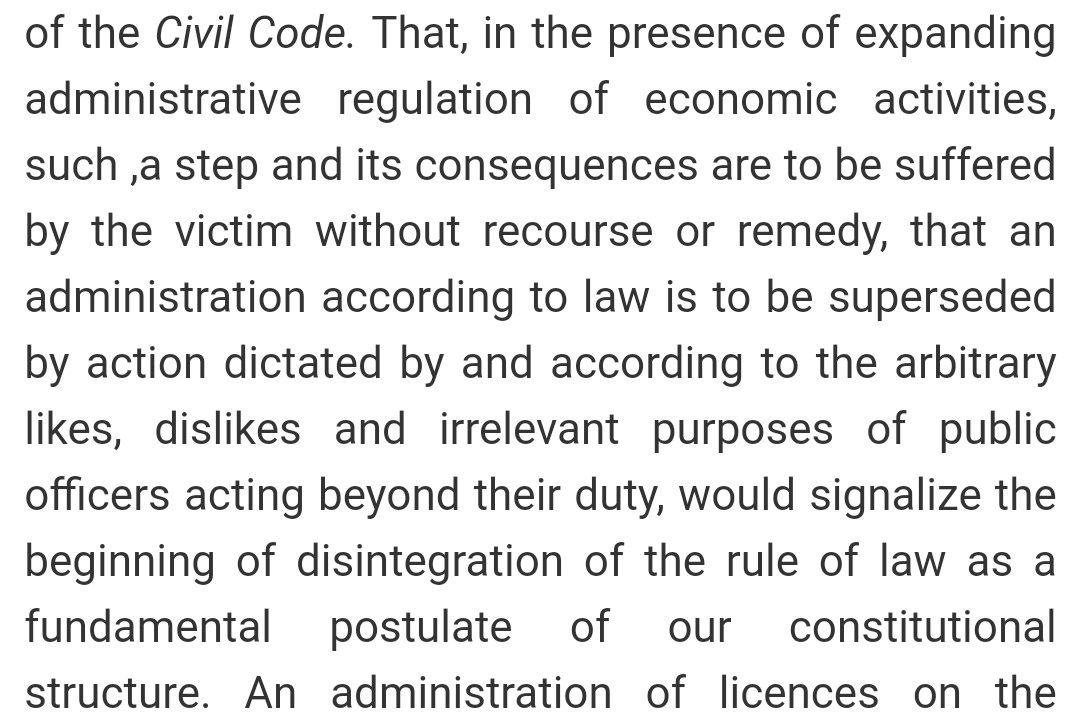🧵What are the extent of the New Brunswick government's powers to end a strike using the Emergency Measures Act? Let's review. The province has the ability to order workers back to work if a strike impacts the ability to respond to an emergency. With some caveats #nbpoli /n 

S.12 of the Act gives the province the ability to "do everything necessary for the protection of property, the environment and the health & safety of persons therein" the list in section 12 only provided examples but isn't exhaustive. Can also ensure access to buildings /2 

The province cannot legally suspend or amend other acts via a mandatory order as the EMA doesn't give this power. Paragraphs that overreach this rule I would expect to generate considerable interest in a labour context especially regarding fines for violating an order. /3 

The types of workers who can be ordered back to work due to a state of emergency must have some nexus to the state of emergency. Health care or certain public safety workers absolutely. It becomes a stretch to apply this to school support staff or school bus drivers /4
The Supreme Court of Canada in Saskatchewan Federation of Labour v. Saskatchewan, 2015, struck down a law & held that the right to strike is protected under s.2(d) of the Charter. A mandatory order cannot override that right unless justified under s.1 of the Charter /5 

The Supreme Court said that any interference re the right to strike must be "carefully tailored so that rights are impaired no more than necessary" the case dealt with the unilateral classification of essential services. This raises an interesting issue in NB /6 

To assist in New Brunswick's covid response many public sector workers have roles that exceed their usual classification & tasks. This includes tasks not necessarily termed "essential" but are essential to responding to COVID. Certain roles re Peace Officers for example /7
The Court did cite statements from an international law professor who viewed that international law permits the limiting of the right to strike "in the event of an acute national emergency for a limited period of time" /8 

The government could order workers essential to the COVID response back to work under the penalty of fines. These fines would be set to to Category F ranges between $240 ~ $10,200 not $480 ~ $20,400 as the Assembly never gave the Minister the unilateral power to set fines /9 

There is a significant legal risk that these improperly enacted fines would be thrown out by the Courts due to the principles of statutory interpretation, the English Bill of Rights & the Rule of law. The amount is also low enough that it may not compel workers back to work. /10 

The other aspect is unlike back to work legislation, I do not see how a mandatory order could impose binding arbitration between the employer and the union. The purpose is to prevent a strike action during a state of emergency not resolve the underlying labour dispute /11
This principle mirrors the federal Public Sector Labour Relations Act which gives the federal cabinet the ability to defer a strike while there is a federal election specifically because it is not possible to introduce back to work legislation. /12 

The 1966 PEI precedent of using emergency powers to end a ferry strike never addressed this because it was a provincial back to work order in the context of a federal labour dispute. It was to ensure continual access to the mainland not resolve the labour issues. /13 

Any back to work legislation must also be specifically tailored to respect the 2015 Supreme Court Ruling re the right to strike. It can be more expansive than a Mandatory Order as it doesn't have to have a nexus to the current state of emergency /14
Procedurally there is no requirement that the gov prorogue the current Assembly or even start the new Assembly with a formal Speech from the Throne. Government could immediately introduce back to work legislation. Assembly can also be recalled earlier than normally scheduled /15
This occurred in Oct 25, 1995 when the NB Assembly met but the LG did not proceed with a Throne Speech but instead the Assembly passed a resolution with respect to the Quebec Referendum. Throne Speech occured on Feb 6, 1996 /16 

The principle is that the Assembly is under no obligation to follow the direction of the Crown re the cause of summons for an Assembly. It is a function of the Assembly being independent from the Crown. This is why a symbolic act is moved at the start of every session. /17 

Of course it being the Legislative Assembly, how quickly back to work legislation can be passed also depends on the position of the opposition. Even in a majority government, it still takes time. Will the Assembly hear from Union representatives in Committee of the Whole? /18
Those are some of my initial thoughts respecting a strike during a state of emergency. It will be interesting to see if there is any judicial consideration of government actions re a strike as it will help provide clarity on the limits of emergency powers. /19
Generally the courts will confer certain degree of deference in a state of emergency to governments on the best approach to use to resolve a state of emergency. However there are limits to this flexibility afforded to government. Whether something is reasonable is contextual. /20
A debate in the Assembly re back to work legislation could be viewed as providing increased oversight of the pandemic response. However an Act is a decision of the Assembly and not a use of Emergency powers by the executive branch. The Act can still be reviewed by the courts /21
The most significant policy decision for the New Brunswick government is whether they want to resolve the entire labour dispute or simply defer any potential strike action during a state of emergency re Covid. That decision produces significantly different outcomes. /22 #nbpoli
• • •
Missing some Tweet in this thread? You can try to
force a refresh










